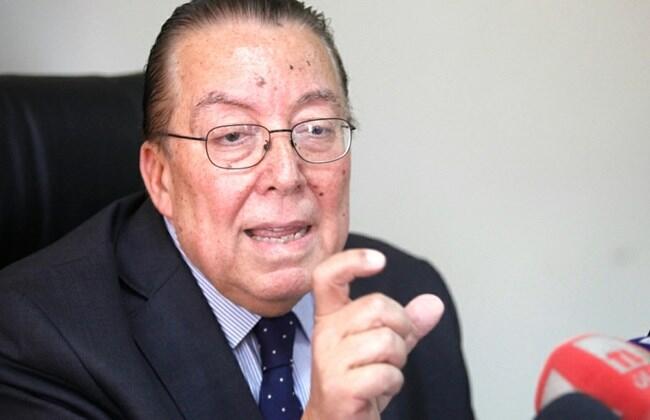The landfill, which was appointed to receive 2 million tons of waste but has instead taken over 15 million, used to be the main disposal ground for Beirut and Mount Lebanon. Environment MinisterMohammad Machnouk said Sunday that he would raise the matter again at Thursday’s Cabinet session. Garbage collection continued as usual in Beirut over the holiday weekend, but there are concerns now that Sukleen, the region’s waste management contractor, will stop its services by mid-week if authorities cannot secure disposal grounds. “We’re stocking garbage in our premises. We’re not disposing waste,” said Pascale Nassar, the communications manager of Sukleen. Mount Lebanon officials told MTV Sunday evening that Sukleen had already suspended garbage collection in some municipalities, but the company refuted the claim. “Today in this crisis, maybe we’re collecting garbage once per week instead of three. As I understand, there are Sukleen trucks passing by,” Nassar said. Municipalities are making emergency plans to handle their own waste. “I have to see what Sukleen does Monday. If they don’t collect, we’ll have to take responsibility – we’ll collect our own trash, sort it and dispose it here,” said Walid al-Aridi, president of the Union of Municipalities of al-Gharb al-Ala and Chehhar. “You know, the minister [Machnouk] at the last second put this burden on our shoulders. If he had given us more time, we could do better.” Agriculture Minister Akram Chehayeb warned on TV Sunday of “a serious environmental hazard by Tuesday or Wednesday” if collection is discontinued. Trash spilled onto the capital’s streets last year when demonstrators closed Naameh landfill for a week. Residents suffered in the fetid air. Residents of Naameh and other Chouf areas have again blocked access to the fill and vowed Sunday to continue their sit-in, now in its fourth day, until they saw legal documents certifying it is closed. Among them is Aridi, who told The Daily Star, “Naameh is closed, absolutely.” They have the support of Progressive Socialist Party leader Walid Jumblatt’s parliamentary bloc, the Democratic Gathering, which includes several Chouf MPs. “July 17 is the final deadline to close Naameh landfill, and we will not accept any extension,” the bloc said in a statement last week. But Environment Minister Mohammad Machnouk asked whether Naameh would have to receive waste again, for a four year interim, as plants are built to incinerate Beirut’s waste. “We do not want to dispose Beirut’s waste in Naameh, but … we must find a solution: will we open new landfills, or use this one until we implement the [incineration] plan?” Machnouk said, in a statement published Sunday. Demonstrators said they would stand firm. “Our land will not accept anyone’s waste, and we are not responsible for the government’s failures,” the group Close Naameh Landfill said. “Our health is no less important than the health of any other Lebanese citizen. We are not second-class citizens.” This weekend’s relative calm is a tense pause to weeks of escalating concern that a sit-in at Naameh will suffocate Beirut in waste. The government had promised in January to retire the Naameh landfill by July 17, but residents and activists planned their strike after government inaction suggested the site would remain open past the latest close-by date. On the eve of the Friday deadline, Machnouk yielded to mounting civic and political pressure and asked Sukleen to continue to collect garbage in Beirut and Mount Lebanon but return the treated refuse to each locality for disposal. Early Friday morning, a final convoy of Sukleen trucks, escorted by security forces, unloaded their cargo at Naameh. At 7:30 a.m., about 50 demonstrators deployed across the access road and they reported to The Daily Star Sunday that not a single truck had arrived since then. “We’re making shish kabob,” Ajwad Ayache said by phone Sunday afternoon, his voice hoarse from demonstrating. “We’re waiting for a decree from the government, to see implementation, and then we’ll leave.” Ayache, one of the leaders of Close Naameh Landfill, joined the demonstrations from his home nearby, in Baourta. The Environment Ministry is in the midst of overhauling the country’s waste management. After twice failing to find private bidders to handle Beirut’s and its southern suburbs’ refuse, Machnouk said the Cabinet would have to intervene if no private consortiums present themselves at the next round of contract tenders, to be launched within 15 days. Sukleen’s contract expired July 17, but a source at the company told The Daily Star they would continue to offer its services until the ministry implements a new regime. Machnouk said Sunday the transition would take at most six months. The Naameh landfill opened in 1998 as a component of the government’s emergency plan to close the Burj Hammoud dump. The plan was supposed to be provisionary and Naameh’s gates were set to close in 2004. But successive governments kept postponing the date, and Sukleen overfilled the landfill far beyond any conceivable capacity. In a January decree, the Cabinet tasked the Environment Ministry to triple the amount of waste Lebanon recycles, composts and incinerates. The country currently eliminates just 23 percent of its garbage this way and dumps or landfills the rest, according to a 2014 study completed in coordination with the ministry. Lebanese environmentalists strongly oppose incineration. They argue it is cheaper and safer to compost and recycle instead. Incinerator ash can poison groundwater if not disposed properly. The Daily Star











